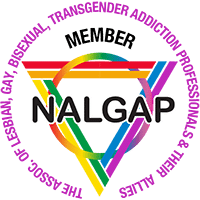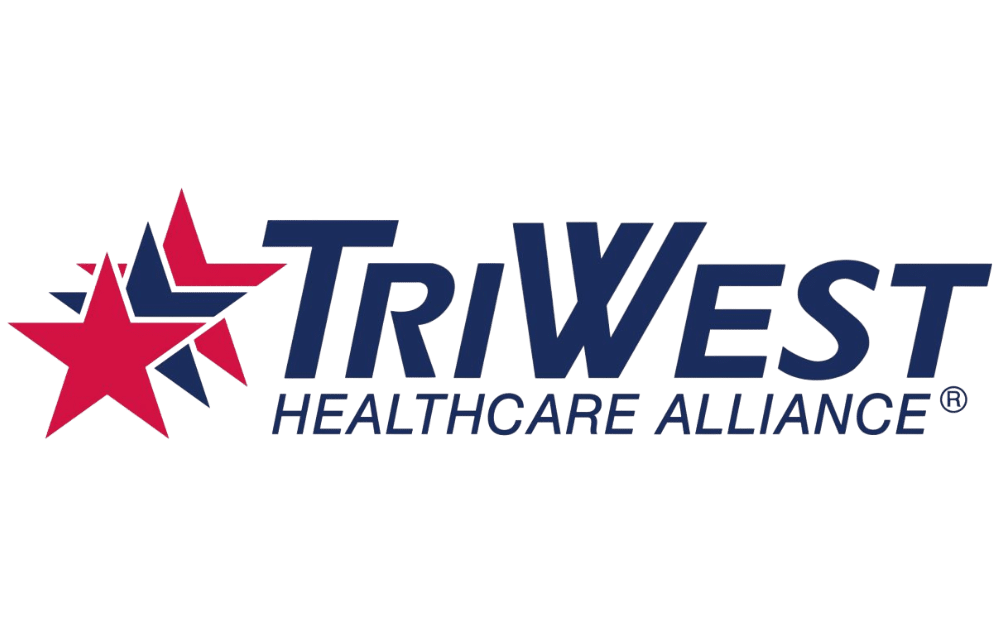Treatment Centers in Colorado
Comprehensive Treatment Options
Treatment Centers in Colorado, particularly those with a holistic approach, offer a wide spectrum of services that address both the psychological and physical aspects of addiction. These centers provide inpatient and outpatient programs, each designed to meet the individual needs of those seeking recovery. Whether it’s the round-the-clock support offered by residential programs or the flexibility of intensive outpatient programs (IOP), there’s a path for everyone.
Many facilities incorporate evidence-based therapies like Cognitive Behavioral Therapy (CBT) and Dialectical Behavior Therapy (DBT), which help individuals reframe negative thinking patterns and develop coping skills. In addition to traditional therapies, some centers offer experiential modalities such as art and music therapy, which encourage self-expression and emotional release in a less conventional manner.
The Role of Experiential Therapy
Experiential therapy is a significant component of many Treatment Centers in Colorado, offering patients a unique way to engage with their recovery. Unlike traditional talk therapy, experiential therapy uses activities to help individuals process emotions and develop insights about their behaviors and relationships.
Activities like equine-assisted therapy and adventure therapy encourage patients to engage with their environment, promoting trust, empathy, and personal growth. These therapies are particularly beneficial for those who may have difficulty expressing themselves verbally or who respond better to hands-on activities.
Adding to the richness of the therapeutic experience, these activities are often set against Colorado’s beautiful natural landscapes, providing a serene backdrop that enhances the healing process. The integration of experiential therapy into treatment plans highlights the importance of addressing the whole person, rather than focusing solely on addiction symptoms.
Evidence-Based Clinical Approaches
The backbone of successful treatment programs often lies in their use of evidence-based clinical approaches. Treatment Centers in Colorado employ a variety of scientifically validated therapies to ensure that care is both effective and personalized. Cognitive Behavioral Therapy (CBT) remains one of the most widely used methods, as it helps individuals identify and change destructive thought patterns that lead to substance use.
Another innovative therapy used is Eye Movement Desensitization and Reprocessing (EMDR), particularly effective for patients dealing with trauma-related disorders. This therapy helps patients reprocess traumatic memories, reducing their emotional impact and helping prevent relapse. Such techniques are integral to a comprehensive treatment plan and are tailored to address individual patient needs.
Dual Diagnosis Treatment
Many individuals seeking help from Treatment Centers in Colorado suffer from co-occurring mental health disorders. Dual diagnosis treatment is vital as it addresses both addiction and underlying mental health issues simultaneously. This comprehensive approach ensures that neither condition is neglected, reducing the risk of relapse.
Centers offering dual diagnosis treatment typically integrate personalized approaches to address conditions such as anxiety, PTSD, and depression. By doing so, patients receive a more holistic care plan that enhances their ability to maintain long-term recovery. The inclusion of family therapy further supports this process, as it involves loved ones in the healing journey, promoting understanding and cooperation.
Such well-rounded care makes these centers particularly attractive to those seeking a thorough understanding of their mental health and substance use issues. By treating both conditions in tandem, patients have a greater chance of achieving and maintaining sobriety.
Personalized Care Plans
One of the hallmarks of effective Treatment Centers in Colorado is their commitment to personalized care plans. Recognizing that each person’s journey to recovery is unique, these facilities focus on tailoring treatment to meet individual needs, preferences, and circumstances.
This might involve adjusting treatment modalities, integrating different therapeutic activities, or providing specific medications for withdrawal management and cravings. The focus on personalized care ensures that patients are not just another number, but individuals whose unique situations are acknowledged and addressed.
Sober Living and Aftercare
Successful recovery goes beyond initial treatment, with many Treatment Centers in Colorado emphasizing the importance of sober living environments and aftercare programs. Sober living homes provide a structured, supportive environment where individuals can transition from treatment to everyday life while still receiving guidance and support.
These homes often foster a sense of community, as residents work together towards shared recovery goals. This communal approach is bolstered by ongoing access to aftercare services, such as group meetings and counseling sessions, which reinforce the skills and strategies learned during treatment.
By prioritizing aftercare and sober living, these centers help individuals build a solid foundation for a sustainable recovery journey. The emphasis on community support is crucial for maintaining long-term sobriety and personal growth.
This dual emphasis on sober living and continuous care demonstrates a comprehensive approach to recovery, recognizing that the journey does not end after leaving a treatment facility.
Insurance and Accessibility
Navigating insurance coverage can be one of the most daunting aspects of seeking treatment. Fortunately, many Treatment Centers in Colorado have dedicated staff to help verify insurance and facilitate coverage. By working directly with major carriers like Aetna, Cigna, and Blue Cross Blue Shield, these centers aim to make treatment more accessible to those in need.
Furthermore, several centers engage in partnerships with local healthcare providers to streamline transitions of care, ensuring that individuals can access the treatment that best fits their needs. This proactive approach helps demystify the financial aspects of treatment, reducing barriers to entry and allowing patients to focus on their recovery journey.
Patient-Centered Environment
Creating a patient-centered environment is paramount to the success of Treatment Centers in Colorado. This involves cultivating a space where patients feel safe, respected, and empowered to take control of their recovery. Staff with lived recovery experience often contribute greatly to this environment, offering genuine empathy and understanding.
By fostering strong clinician-patient relationships, treatment centers ensure that care is both compassionate and effective. This approach encourages patients to actively participate in their healing process, setting a foundation for long-term recovery and personal transformation.
Such an environment not only nurtures healing but also inspires confidence and motivation in patients as they embark on their journey to sobriety.
Unique Therapeutic Offerings
The diverse array of therapeutic offerings found in Treatment Centers in Colorado sets them apart from other locations. From adventure therapy to equine-assisted therapy, facilities provide innovative methods that encourage engagement and personal growth.
These unique offerings cater to diverse interests and help individuals explore new avenues of healing, often leading to profound personal insights. Such therapies are not only beneficial for personal development but also for building resilience and coping strategies that are essential for sustained recovery.
Community Support and Alumni Involvement
Another distinctive feature of Treatment Centers in Colorado is their strong focus on community support and alumni involvement. Active alumni communities play a crucial role in long-term recovery, offering mentorship, accountability, and a sense of belonging.
By connecting current patients with alumni, centers create a supportive network that extends beyond formal treatment. This network is invaluable for reinforcing recovery principles and fostering a sense of community among individuals who understand the challenges and triumphs of the recovery journey.
The involvement of alumni not only enhances the recovery process for current patients but also strengthens the overall recovery community, creating a dynamic and supportive environment for all involved.
What does a comprehensive treatment plan entail at Mile High, and how does it differ from other centers?
At Mile High, a comprehensive treatment plan is designed to address both the physical and psychological aspects of addiction, offering a full spectrum of services that cater to individual needs. This includes a variety of programs such as residential treatment, intensive outpatient programs (IOP), and partial hospitalization. What sets Mile High apart is its integration of evidence-based clinical therapies like Cognitive Behavioral Therapy (CBT) and Dialectical Behavior Therapy (DBT), combined with experiential therapies such as equine-assisted therapy and adventure therapy. These elements work together to create a personalized and holistic approach to recovery. Imagine a patient who thrives on structure and support but also benefits from activities like art and music therapy to express emotions–this personalized mix provides a well-rounded path to recovery. How do you think incorporating experiential therapies might change someone’s perspective on addiction treatment?
Why is experiential therapy emphasized at Mile High, and what benefits does it offer?
Experiential therapy is a cornerstone at Mile High because it allows individuals to engage with their recovery in dynamic and impactful ways. Unlike traditional talk therapy, this approach uses activities to help patients explore their emotions and develop deeper insights into their behaviors. For instance, equine-assisted therapy promotes trust and empathy, as interacting with horses requires participants to be present and engaged. This kind of therapy can be particularly beneficial for those who find it challenging to express themselves verbally. Imagine a person who struggles to articulate their feelings in a conventional therapy session but finds clarity and insight through hands-on activities. What do you see as potential challenges or limitations of experiential therapy?
How do evidence-based therapies at Mile High enhance treatment outcomes?
Mile High’s use of evidence-based therapies is crucial in personalizing treatment to enhance outcomes. Techniques like Cognitive Behavioral Therapy (CBT) and Eye Movement Desensitization and Reprocessing (EMDR) help patients reframe negative thought patterns and process trauma, respectively. These methods are grounded in scientific research and have been shown to effectively reduce symptoms and prevent relapse. For example, a study by the American Psychological Association highlights the efficacy of CBT in treating substance use disorders by significantly decreasing cravings and promoting healthier coping mechanisms. Have you come across any other research that supports or challenges the use of evidence-based therapies in addiction treatment?
What are the advantages of dual diagnosis treatment at Mile High for those with co-occurring disorders?
Dual diagnosis treatment at Mile High offers significant advantages for individuals dealing with both addiction and mental health disorders. This approach ensures that both conditions are treated simultaneously, reducing the risk of relapse. For instance, someone struggling with PTSD and substance use will receive tailored interventions that address trauma and addiction together, enhancing their overall mental health and recovery prospects. The inclusion of family therapy further strengthens the support system, providing a comprehensive care plan that fosters long-term sobriety. Can you think of other instances where treating co-occurring disorders has been particularly beneficial in someone’s recovery journey?
How does Mile High ensure that treatment plans are personalized to each individual’s needs?
Mile High is dedicated to creating personalized care plans by considering each patient’s unique circumstances and preferences. This might involve adjusting treatment modalities or incorporating specific therapies like motivational enhancement therapy and medication-assisted treatment. By doing so, the center ensures that the needs of each person are met, recognizing them as individuals rather than just another case. An example might be a patient who responds well to group therapy but requires specific medication to manage withdrawal symptoms. The personalized care at Mile High acknowledges these nuances, resulting in more effective outcomes. Have you ever encountered situations where a personalized approach made a significant difference in someone’s recovery?
What role do sober living environments and aftercare play at Mile High?
Sober living environments and aftercare are integral components of Mile High’s approach to sustained recovery. These structured environments offer a supportive community where individuals can transition from treatment to everyday life while maintaining a focus on long-term sobriety. Aftercare programs, including group meetings and counseling sessions, reinforce the skills learned during treatment, providing ongoing support. For example, someone who has completed an inpatient program can benefit from the accountability and camaraderie found in a sober living home, coupled with regular aftercare meetings. How important do you think community is in someone maintaining their sobriety post-treatment?
How does Mile High make treatment accessible to those with insurance concerns?
Mile High prioritizes making treatment accessible by working directly with insurance carriers like Aetna, Cigna, and Blue Cross Blue Shield to verify and facilitate coverage. This proactive management demystifies the financial aspects of treatment, reducing barriers for those seeking help. Imagine someone anxious about the cost of treatment discovering that their insurance will cover most expenses–this relief allows them to focus on their recovery journey without financial stress. Have you or someone you know ever faced insurance hurdles when seeking treatment, and how was it resolved?
How does Mile High’s patient-centered environment enhance the recovery experience?
Creating a patient-centered environment is a priority at Mile High, emphasizing safety, respect, and empowerment. This environment is cultivated by staff with lived recovery experience, who offer genuine empathy and understanding. Strong clinician-patient relationships encourage active participation in the healing process, promoting long-term recovery. A patient who feels respected and valued is more likely to engage in their treatment and achieve personal transformation. How have you seen a supportive environment impact someone’s journey to recovery?
What unique therapeutic offerings are available at Mile High, and why are they important?
Mile High offers a diverse range of unique therapeutic options, including equine-assisted therapy, adventure therapy, and art and music activities. These therapies cater to varied interests and promote personal growth by encouraging engagement in non-traditional healing methods. For instance, adventure therapy can foster resilience and coping strategies, essential for long-term recovery. Imagine someone gaining new insights into their strengths by overcoming challenges in an outdoor setting. What other unique therapies do you believe could further enhance the recovery process?
Why is community support and alumni involvement a focus at Mile High?
Community support and alumni involvement are vital aspects of Mile High’s philosophy, emphasizing the importance of mentorship and a sense of belonging in recovery. An active alumni community provides ongoing support, accountability, and motivation. By connecting current patients with alumni, the center creates a network that extends beyond formal treatment, reinforcing recovery principles. For example, an alum who has successfully maintained sobriety can offer invaluable insights and encouragement to someone just beginning their journey. How might alumni involvement influence someone’s confidence and commitment to recovery?
For more information on treatment services available in Colorado, you can visit this resource or explore specific centers like RehabNet.
Resources
- Substance Abuse and Mental Health Services Administration (SAMHSA) – SAMHSA is the leading agency in the U.S. working to reduce the impact of substance abuse and mental illness on America’s communities.
- National Alliance on Mental Illness (NAMI) – NAMI is the largest grassroots mental health organization dedicated to building better lives for the millions of Americans affected by mental illness.
- National Institutes of Health (NIH) – The NIH is the nation’s medical research agency, supporting scientific studies that turn discovery into health.
- National Institute of Mental Health (NIMH) – NIMH is the lead federal agency for research on mental disorders, aiming to transform the understanding and treatment of mental illnesses.
- American Psychiatric Association (APA) – APA is the leading psychiatric organization in the world, advocating for the best care and well-being of individuals with mental disorders.
















